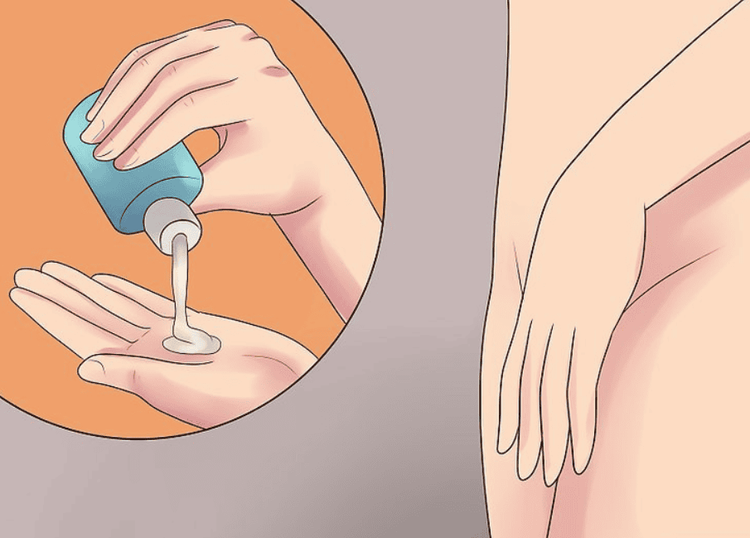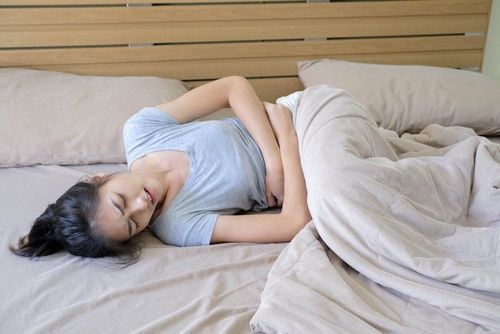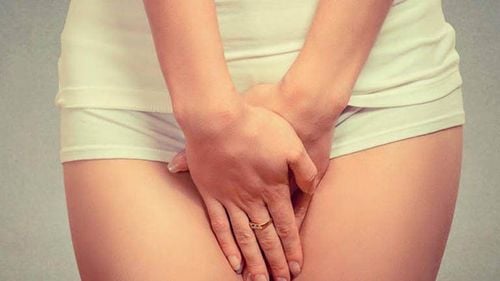With new feminine hygiene products on the market, including cleansers and perfumes, women today seem to no longer worry too much about the scent of their private parts. However, do women need to use these products to clean their private parts and how many times a day is enough?
1. Overview of private part physiology
A woman's private part is a sensitive area that includes many different parts. The vagina is a muscular tube inside the female body that runs from the cervix to the vaginal opening. The external genitalia, collectively known as the vulva, surround the vaginal opening. The vagina can keep itself clean thanks to its natural secretion mechanism, so there is no need for regular vaginal douching as a step in daily private part hygiene.
Dr. Suzy Elneil, consultant urologist at University College Hospital, London, and spokesperson for the Wellbeing of Women organization, says looking after your everyday health can help keep your vagina in good condition. “Generally, good vaginal health is maintained by making sure you are in good general health,” she explains. “This includes a healthy diet and exercise. “Regular exercise helps maintain good vaginal function, as walking and running strengthen the pelvic floor and promote good overall health.”
Apart from your natural menstrual cycle, it is normal to have clear or milky discharge from your vagina. This mucus is naturally produced by the cervix and then flows out through the vaginal canal. “Vaginal discharge is not always a bad sign,” says Dr. Elneil.
The consistency and amount of vaginal discharge will change throughout your menstrual cycle. Around the time of ovulation, your discharge will usually become thicker and more stretchy, similar to raw egg whites. Discharge from a clean vagina should have no odor or color. You may feel an uncomfortable wetness in your vagina, but you should not have any itching or pain around your vagina. If there are any changes to your normal discharge, such as changes in color or starts to smell or itch, see your doctor as you may have an infection.
There are lots of bacteria inside the vagina and they are there to maintain homeostasis and protect the vagina. Professor Ronnie Lamont, spokesperson for the Royal College of Obstetricians and Gynaecologists, said: "The vagina has more bacteria than anywhere else in the body, but the bacteria are there for a reason."
The good bacteria inside the vagina have several jobs, including:
- Providing “numbers dominance” - they outnumber other potentially harmful bacteria that might enter the vagina
- Helping to keep the pH balance of the vagina even, which helps to keep the balance of bacteria healthy
- Can create bacteria (natural antibiotics) to reduce or kill other bacteria that enter the vagina
- Producing a substance that prevents invading bacteria from sticking to the vaginal walls, preventing bacteria from entering the tissues
If the balance of bacteria inside the vagina is disturbed, this can lead to infection and inflammation. Bacteria called lactobacilli help to keep the pH balance of the vagina at a normal low level (pH below 4.5), which also prevents the growth of other organisms. If the pH of the vagina increases (it becomes less acidic), the quality or quantity of lactobacilli may decrease and other bacteria may flourish. This can lead to infections such as bacterial vaginosis and cause symptoms including itching, irritation and unusual discharge.

2. How many times a day should you clean your vagina?
Although the vagina can self-regulate and protect itself from pathogens, that does not mean you should completely ignore vaginal hygiene. The organs in the vaginal area, including the vagina and external genitalia, still need to be cleaned daily. Using clean water to clean the vaginal area is a simple but effective method.
Dr. Simic said: 'Use alcohol-free soap and warm water to gently wash the area around the vagina at least once a day. It is safe to wash the skin around the external opening of the vagina and the labia majora and labia minora. The skin in the genital area is very delicate so it is important to use unscented soap, or just water, once a day, to clean the genital area daily.
3. How to properly clean your private parts?
When washing your vagina, you should avoid using scented soaps, gels and antiseptics as they can affect the healthy balance of bacteria and pH levels in the vagina, and can also irritate. Use a plain, unscented soap to gently wash the area around the vagina and vulva every day. The vagina cleans itself from the inside using natural vaginal secretions.
“During menstruation, washing more than once a day can be helpful, and keeping the perineum area between the vagina and anus clean is also important,” says Dr Elneil. “Genital hygiene is essential and should be maintained by washing the area at least once a day as part of your normal bathing routine.” “All women are different,” says Professor Lamont. “Some women can wash with perfumed soaps and not notice any problems. “But if a woman has symptoms or vulvar irritation, one of the first things you can do is use an unscented, hypoallergenic soap to see if that helps.”
Many women douche during their daily intimate hygiene routine. Douching helps push water into the vagina, clearing away vaginal secretions. Some women use douches to “clean” the vagina. However, using a douche can disrupt the normal balance of bacteria in the vagina, so it’s not recommended. Douching is not helpful, explains Professor Lamont, because if we wash everything out of the vagina, that includes all the healthy bacteria. There is no evidence that douching helps prevent sexually transmitted infections or vaginitis, and may even increase the risk.
Scented products such as scented wipes and vaginal deodorants can disrupt the natural healthy balance of your vagina. “It’s normal for your vagina to have a distinct smell,” says Professor Lamont.

“Vaginal odor can change at different times of your reproductive cycle and is not always considered a sign of infection or disease,” says Dr Elneil. If you’re concerned about the way your vagina smells, whether it smells different than usual, or you’re using perfumed products to mask your vaginal odor, you should see your doctor. You may have an infection that needs treatment. The most common cause of abnormal vaginal discharge is bacterial vaginosis, which can cause a foul smell. This is easily treated with antibiotics, so see your GP if you’re concerned.
Safer sex is also a way to maintain proper genital hygiene. Some bacteria and viruses can enter the vagina during sex. These include the bugs that cause chlamydia, gonorrhea, genital herpes, genital warts, syphilis, and HIV. You can protect your vagina against these infections by using condoms every time you have sex.
In addition, all women between the ages of 25 and 64 should take the initiative to have regular gynecological exams to check and detect any abnormalities, especially remembering to perform a screening test for cervical cancer, the second leading cause of death from malignancy in women.
To arrange an appointment, please call HOTLINE or make your reservation directly HERE. You may also download the MyVinmec app to schedule appointments faster and manage your reservations more conveniently.













